The Blatant Cruelty of Breeding and Buying Breathing-Impaired Cats
Lilly gasped for breath, her sides heaving with every agonizing inhale. Her horrified guardian watched as her beloved companion—a Himalayan cat rescued at around 8 years old—slipped away. Despite previous surgery to alleviate the problem of her obstructed nasal passages and trachea a year before, Lilly’s unnaturally flattened face had slowly suffocated her to death.
Many guardians of breathing-impaired breeds (BIB) of animal companions experience this tragedy, often unaware that these cats endure exceptional suffering during their shortened lives.
Breathing-Impaired Cats Face a Lifelong Struggle for Air
Just like breathing-impaired dogs, cats who have been bred to have grotesquely flattened faces endure a lifelong (and life-threatening) struggle for air.
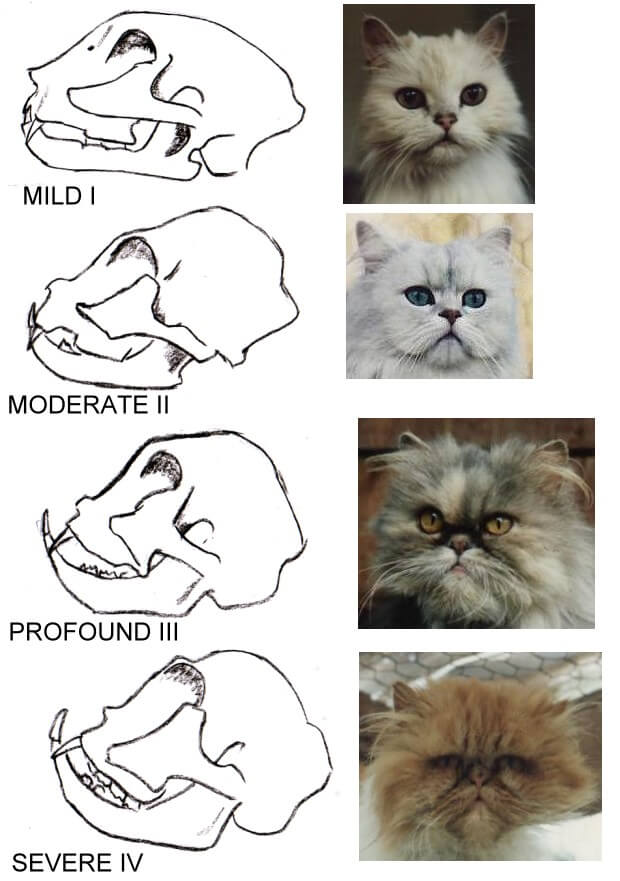
Flat-faced breeds—including Himalayan, Persian, exotic shorthair, and Burmese cats—are afflicted with brachycephalic syndrome, which causes severe discomfort, diminishes their quality of life, and can even be deadly. All because some people prefer how they look. This must end.
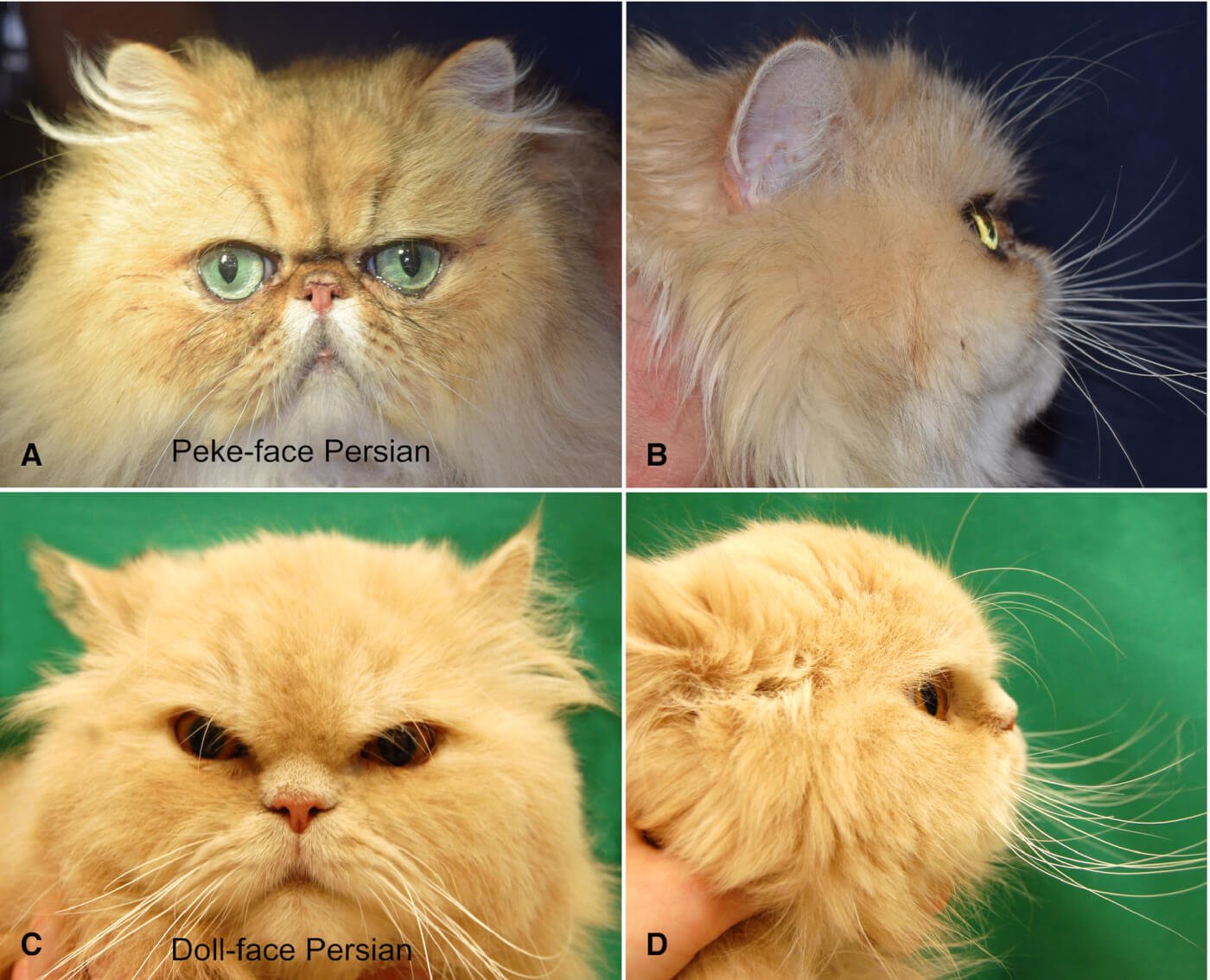
Cats with brachycephalic syndrome endure harmful deformities caused by being bred for smashed-flat noses and unnaturally rounded heads. These deformities include abnormally narrowed, small nostrils, which restrict airflow; a trachea with a smaller-than-usual diameter; a soft palate that’s longer than the roof of the mouth, which further blocks the windpipe; and small sacs or pouches just inside the voice box that turn outward or are sucked into the airway because of the pressure from increased respiratory effort. All these combine to make BIB cats miserable and sick.
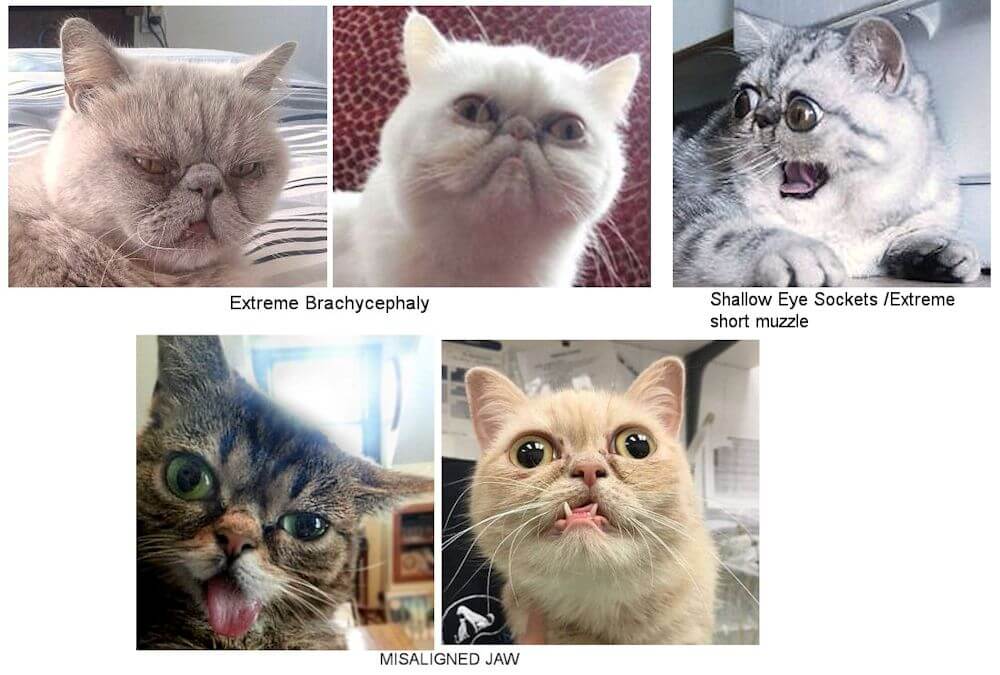
People often think that wheezing, snorting, and snoring are normal for cats, but they aren’t—they’re signs that they’re struggling for air. Cats love to run, climb, jump, and play, but many BIB cats can’t do any of these without quickly becoming exhausted, collapsing, or fainting.
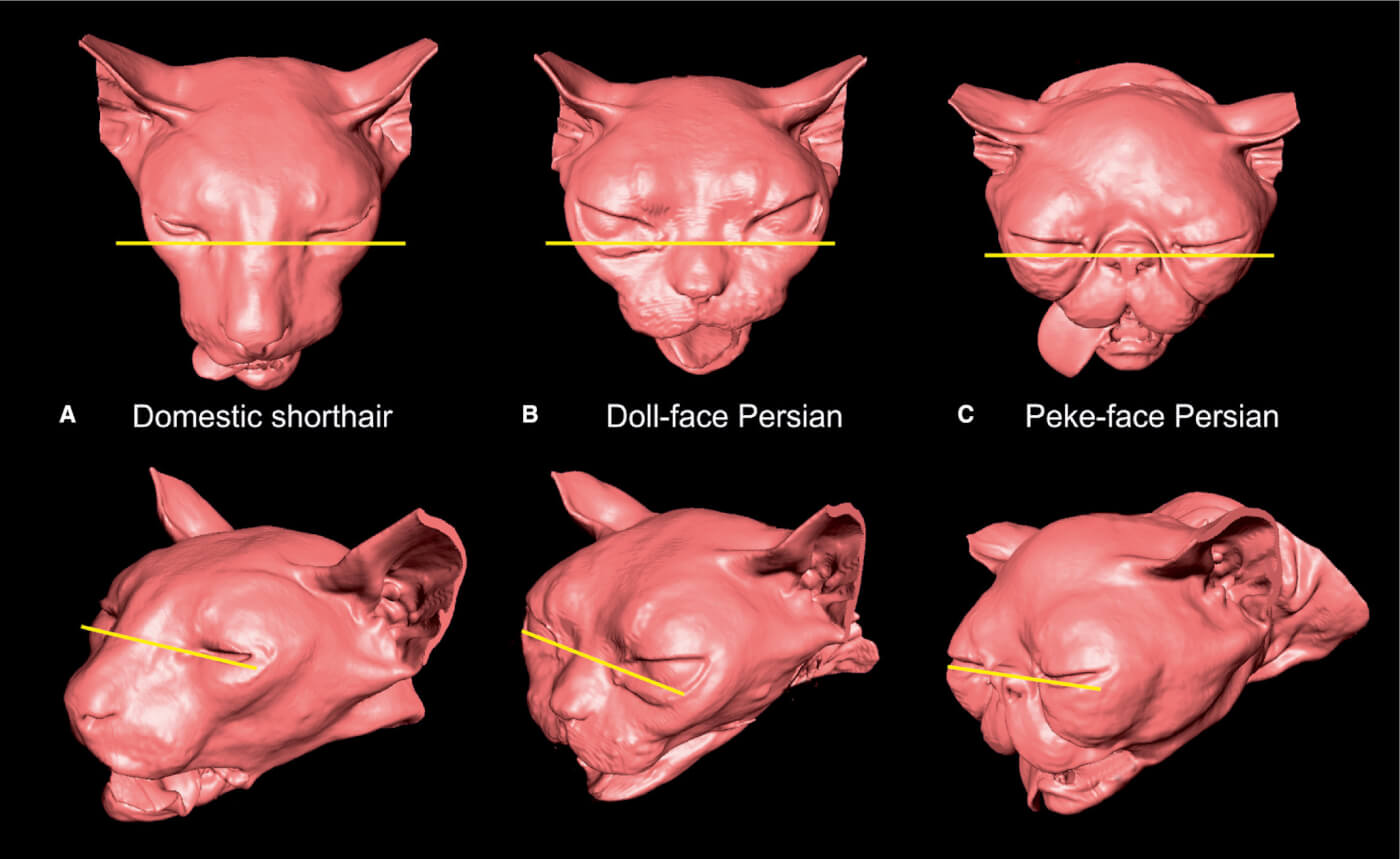
Some BIB cats need surgery just to breathe—which is painful and traumatic for them and costly for their guardians. And it doesn’t always work.
Other Problems Endured by Breathing-Impaired Breed Cats
BIB cats’ misshapen heads also cause them many other significant problems. Their flattened faces can lead to chronic tearing and tear staining as well as chronic dermatitis from pronounced skin folds. Shallow orbits cause BIB cats’ eyes to protrude more than they should, leading to issues like entropion (eyelashes growing inward), chronic inflammation, more frequent eye injuries, and injuries that are more serious and more difficult to treat than in “normal” cats.
The struggle to breathe causes airway inflammation and swelling which is in addition to the congenital malformations that obstruct the airways. These factors combined can cause heart failure. BIB cats’ head shape can create serious dental issues, like overcrowded teeth or jaw misalignment, and it can even cause significant neurological issues, including hydrocephalus (water on the brain). One of the outward signs of this condition is called “sunset eyes,” as the pupils are turned downward.
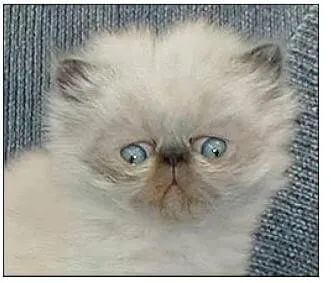
As shown in a 2020 study, even cats’ ability to accurately communicate fear, anxiety, and pain is compromised by this selective breeding. Decreased face length, extra wrinkles, and skin folds hinder facial expressions and ear movements common in non-BIB cats.
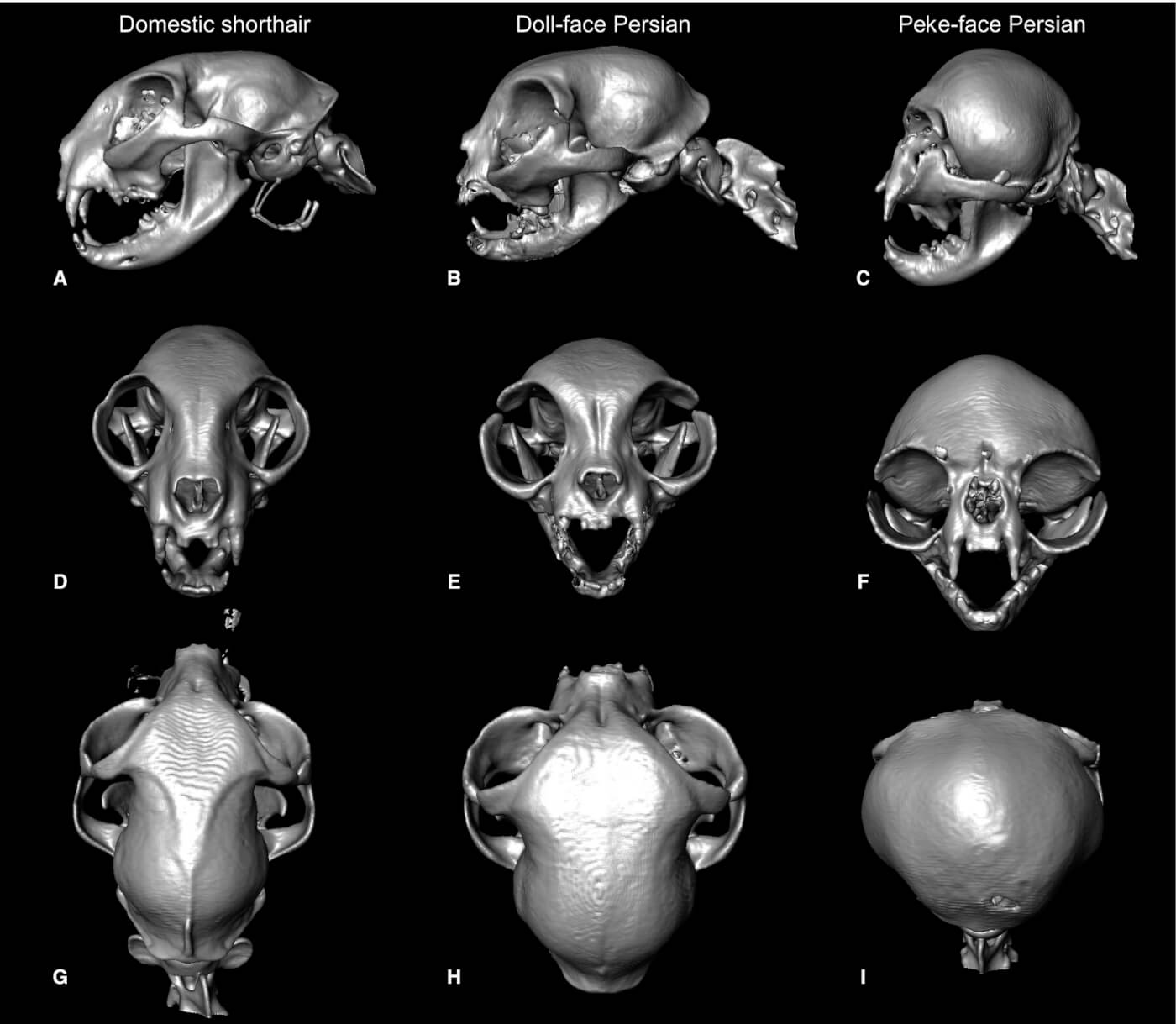
You Can Help: If You See Breathing-Impaired Breed Cats for Sale, NEVER Buy Them
Since breeding cats with flat faces causes suffering, why do breeders keep doing it? Because people keep buying them. The breeding industry is big business, and as long as there’s money to be made by selling, showing, and breeding cats, breeders will keep producing more—regardless of how much suffering they cause in the process. Advertisements, TV shows, movies, and other types of media that feature flat-faced cats—as well as the celebrities and influencers who purchase them—also drive up demand.
Buying BIB cats often leads to being financially and emotionally overwhelmed by trying to manage their many expensive health issues. When guardians are unable or unwilling to pay for surgery and other medical interventions, BIB cats suffer even more, deprived of desperately needed veterinary care. Some are relinquished to shelters, given away, sold online to unsuspecting and ill-equipped people, or abandoned.
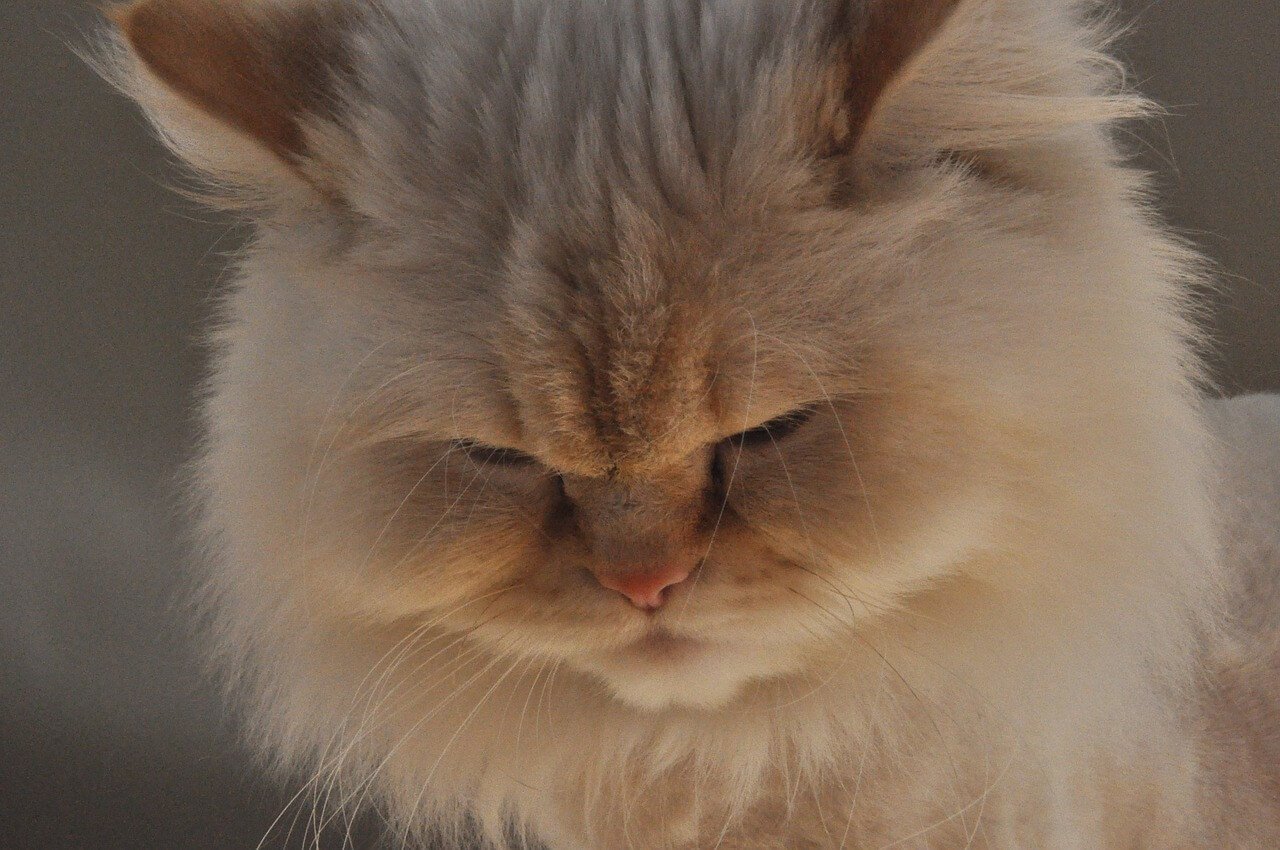
Breeding Breathing-Impaired Cats for Sale Must End: It’s Up to You
It’s speciesist to breed animals to suit our arbitrary preferences, especially when it comes at the expense of their health and well-being and while millions of cats are already waiting in shelters or struggling to survive on the streets. Every kitten sold by a breeder means one less home for a cat who desperately needs one. Please never buy a BIB cat, a BIB dog, or any animal from a breeder or pet store. If you’re emotionally and financially prepared to care for an animal for life, adoption is the only compassionate option.
If you already have a BIB cat, please learn everything you can about their condition in order to make their life as comfortable and fulfilling as possible. Also, visit a reputable, informed veterinarian who can provide appropriate care.
Commit to adopting animals (never buying them), and always be sure to have any cat—or dog—spayed or neutered. And please spread the word: Tell others why breeding and buying cats who can’t breathe is so cruel.

